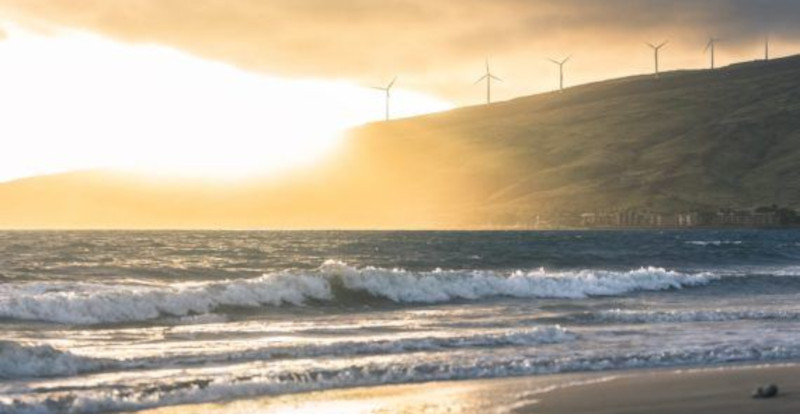Article from Issue #48 (August 7, 2022)
Let’s Re-Imagine our Communities and Build Back Better!
by David Suzuki Foundation

After more than a year of disruption from the COVID-19 pandemic, many people still feel they want to get back to “normal.” But “normal” means continued climate disruption and species extinction, growing inequalities, increased pollution and health risks, and the possibility of further new disease outbreaks.
“Normal” wasn’t working for most people or the planet.
We can do better.
The funds that the government is investing to spur economic recovery are some of the largest of our lifetime. Let’s use this as an opportunity to reimagine our communities, economy and ourselves to create a sustainable, resilient, equitable future.
Three Pillars of Green Recovery
1. Protect and restore nature
Nature conservation should be central to Canada’s recovery from COVID-19. Canada’s ecosystems — forests, wetlands, grasslands, oceans, lakes and rivers — and the biodiversity they support provide people who live here with clean air, safe water, healthy food and opportunities for work and play. They are the basis of our economy and well-being. They are fundamental to the rights and title of Indigenous nations and have inherent value as an integral part of the world we inhabit.
As the country with the second largest territory, Canada harbours diverse ecosystems and can lead the world in nature-based climate solutions. We can support natural infrastructure, create and maintain wildlife habitats and areas of high ecological value, and reform industries that interact with nature.
2. Act on climate
Putting our economic recovery investments to work to ensure a better future and stable climate for all people makes good sense. We have the opportunity now to create sustainable jobs, diversify our economy, reduce carbon pollution, improve resilience against future risks and shocks, and set Canada on track to thrive in a more affordable, safe, equitable, low-carbon future.
We can invest in:
- Ensuring homes and buildings waste less energy and run on clean energy.
- Reducing carbon pollution and congestion by bolstering transit, active transportation (like walking and cycling), electric vehicle use and adoption of smart growth planning principles to create more complete, livable communities.
- Enabling more communities to generate renewable energy.
- Supporting Indigenous priorities in housing, mitigation and adaptation efforts.
- Training more workers for clean economy jobs.
- Ending fossil fuel infrastructure expansion and subsidies.
The pandemic shows that if we act together for the collective good, we can flatten the curve of crises and improve resilience for all.
Like COVID-19, the climate crisis needs a mass collective effort.
3. Transform the economy
This pandemic crisis has shown that our current economic system isn’t working. An economy that measures success by GDP growth deepens inequality, pushes humanity toward ecological and social collapse and fails us in times of need.
We can achieve transformative, lasting change if we align our economic systems with putting people and the planet first by:
- Adopting a guaranteed universal basic well-being support framework.
- Localizing and circularizing the economy to a zero-waste model.
- Formalizing a system of national well-being accounts.
- Establishing a well-being-focused budgeting and governance framework.
- Accelerating meaningful nation-to-nation reconciliation.
- Ensuring equitable flows of assets and financial wealth to reduce inequality and enhance long-term well-being.
By transforming our economy, we can reverse the concerning trends in inequity, unhappiness, loneliness, injustice, environmental degradation, species loss and climate risk.
Investments in a green and just recovery
Over the past year, the federal government has made historic investments in addressing the climate and nature crises, alongside pandemic response.
This includes $15 billion announced with the government’s climate plan and $14.9 billion for transit infrastructure and active transportation.
According to the federal budget document, of $101.4 billion in new spending for 2021, $17.6 billion is to support a green pandemic recovery.
Government is making record-breaking climate and nature investments to help with our long-term resilience and safety as a nation. What comes next will be key. We need stronger, nearer-term climate targets, with accountability legislation to ensure we meet them. We need to continue investing in nature protection and restoration, and Indigenous leadership.
Follow-through will be key to ensuring these investments in climate solutions and nature deliver on their potential to set Canada on a path toward a green and just recovery. This is an opportunity we cannot miss.
Six principles for a just recovery
Along with hundreds of other organizations throughout Canada, we believe that as we rebuild from the pandemic, we have the opportunity to address the pre-existing crises of ecological degradation, climate change, colonialism, social inequity and human rights abuses by ensuring that all investments and initiatives for a COVID-19 recovery uphold the following principles for a just recovery for all:
- Put people’s health and well-being first. No exceptions
Health is a human right and is interdependent with the health and well-being of ecological systems. - Strengthen the social safety net and provide relief directly to people
Focus relief efforts on people – particularly those who are structurally oppressed by existing systems. - Prioritize the needs of workers and communities
Support must be distributed in a manner consistent with Indigenous sovereignty, a climate resilient economy and worker rights, including safe and fair labour standards and a right to unionize. Improved conditions for essential service workers must be maintained beyond this crisis. - Build resilience to prevent future crises
We cannot recover from the current crisis by entrenching systems that will cause the next crisis. - Build solidarity and equity across communities, generations, and borders
In a globalized world, what happens to one of us affects all of us. - Uphold Indigenous Rights and work in partnership with Indigenous Peoples
A just recovery must uphold Indigenous rights and include full and effective participation of Indigenous Peoples, in line with the standard of free, prior and informed consent.


 Earth Day 2022
Earth Day 2022 21 Tips for a Greener Festive Season
21 Tips for a Greener Festive Season Awaken The Species
Awaken The Species